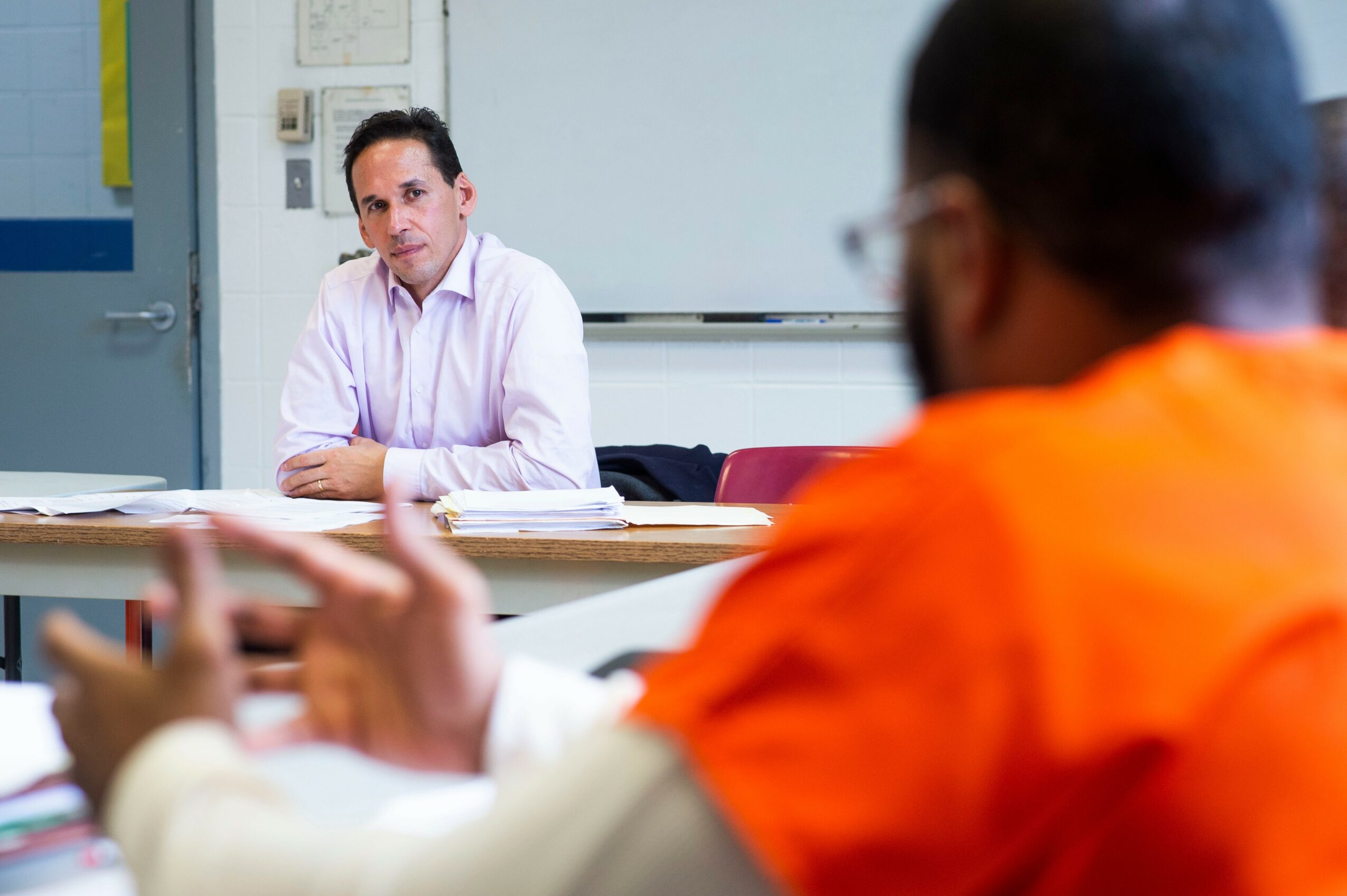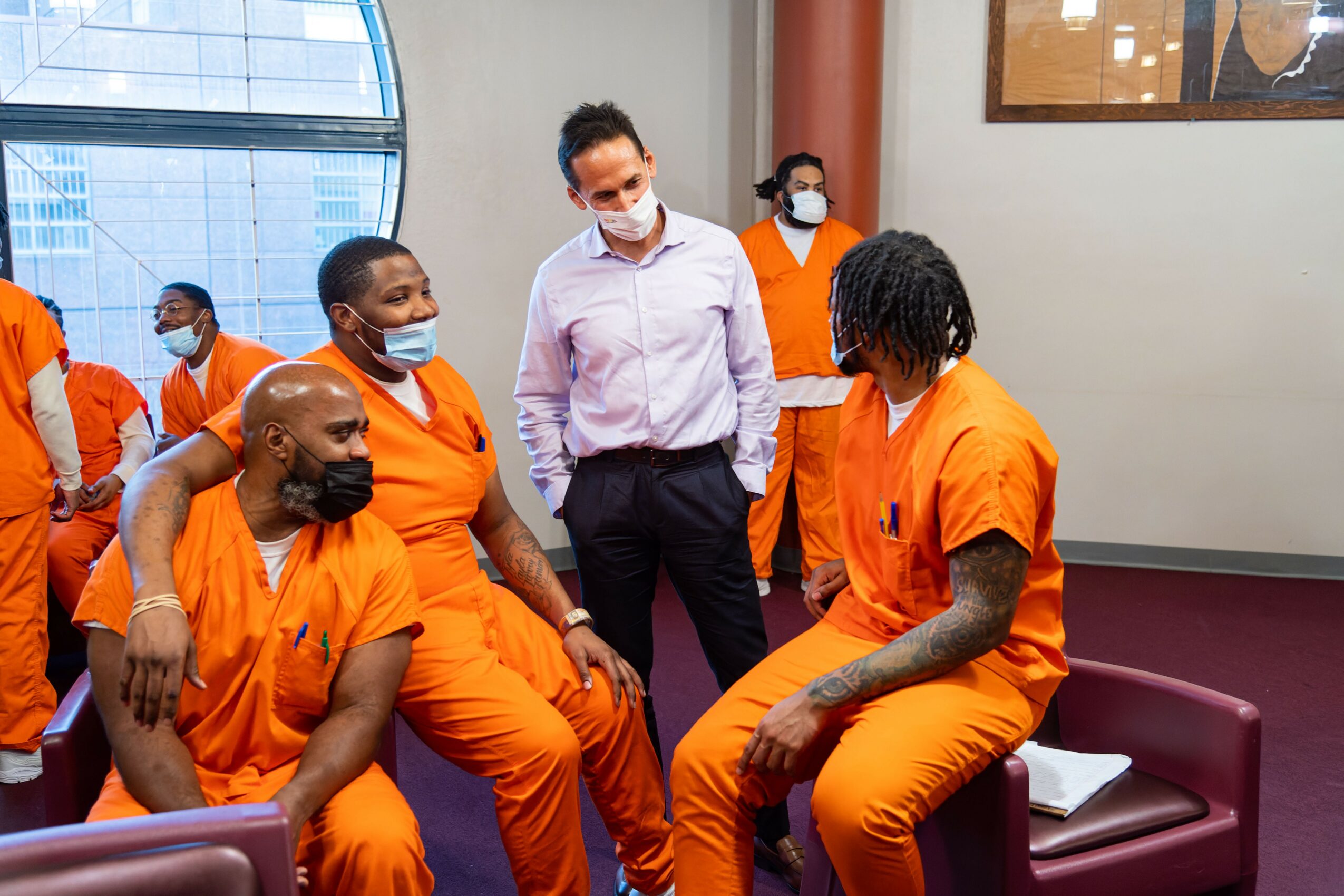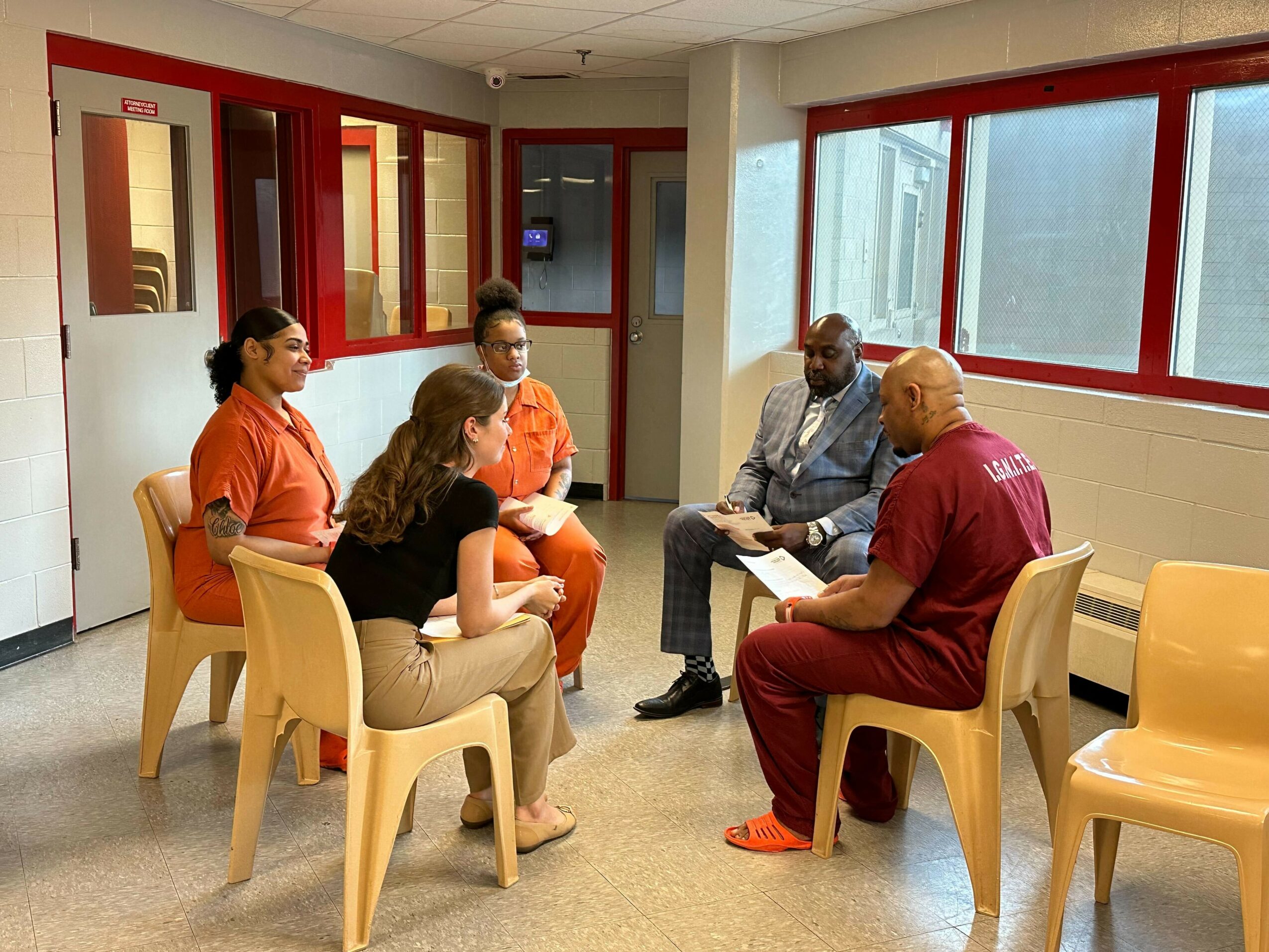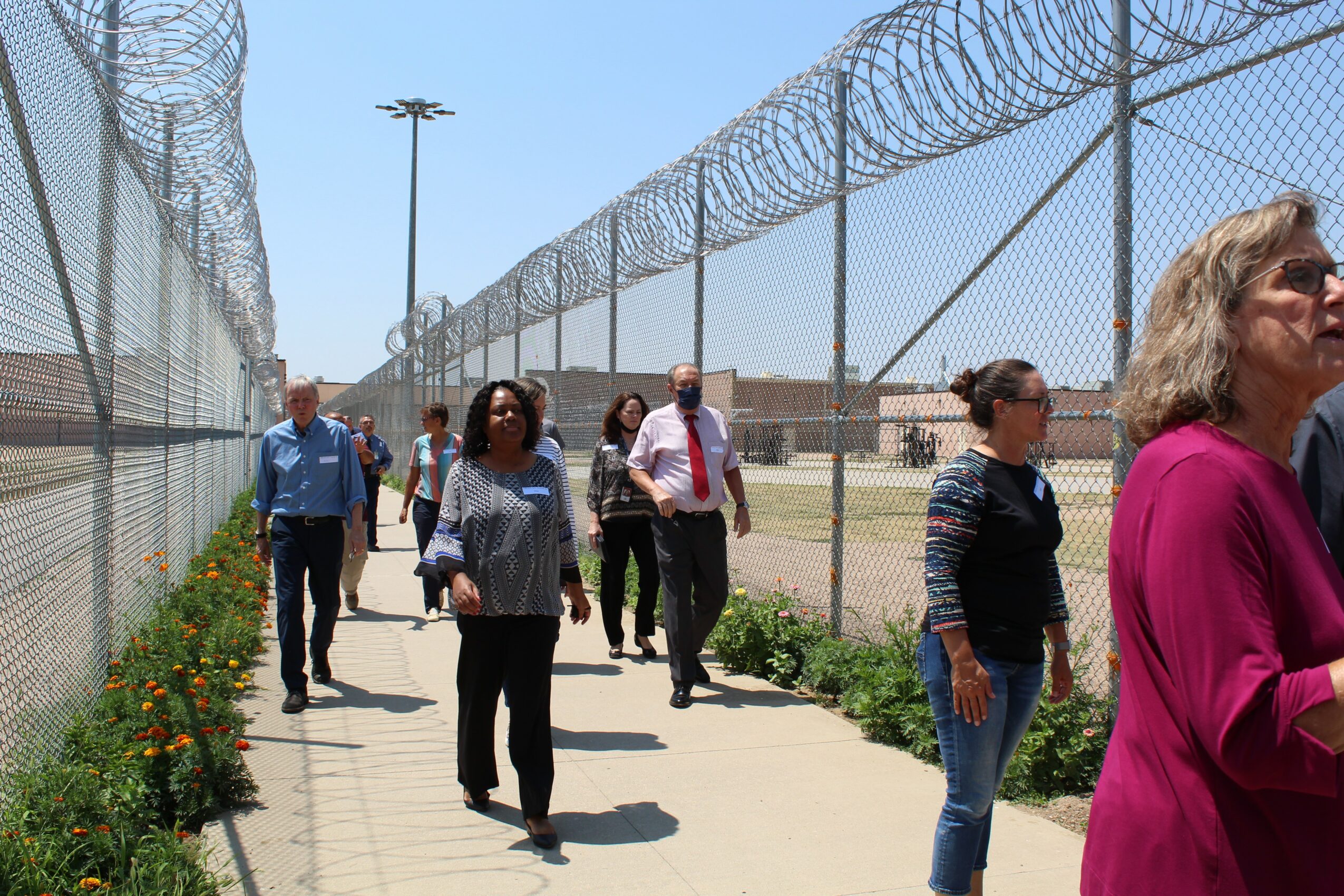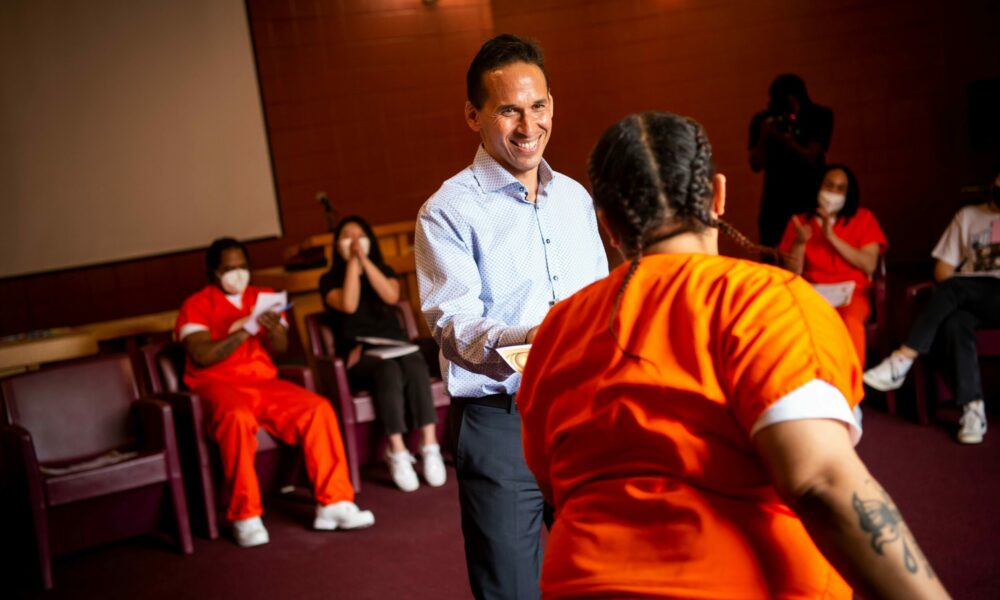

Today we’d like to introduce you to Marc Howard.
Alright, so thank you so much for sharing your story and insight with our readers. To kick things off, can you tell us a bit about how you got started?
My involvement in the world of criminal legal reform stems from my powerful lifelong bond with my friend Marty Tankleff. Born just nine days apart, we first became friends at the age of three while attending the Lovey Dovey House preschool. On the first day of our senior year of high school, Marty woke up to find his parents brutally murdered in their own house, and he quickly became the target of police and prosecutors. Marty was wrongfully convicted and sentenced to 50 years to life in a maximum-security prison. Our life trajectories took us in different directions—as Marty often describes it: “Marc went to Yale, and I went to jail.” About a decade later, when I was already a professor at Georgetown, we reunited in the prison visiting room, and I told Marty that I would dedicate myself to helping secure his release from prison. This promise completely reshaped my life.
For the next several years, I visited Marty regularly in prison, met with his attorneys, helped him with various research tasks related to his appeals, wrote an amicus brief on behalf of our high school classmates, and published op-eds in The New York Times and Newsday. I even decided to pursue a J.D. degree at the Georgetown University Law Center for the purpose of helping to free him.
When the New York Appellate Division overturned Marty’s conviction in December 2007 — citing my amicus brief in its ruling — over 17 years after he had originally been wrongfully convicted, I flew back from France to be present for Marty’s release. Even after Marty’s exoneration, I continued my law studies, received my J.D. in 2012, and embarked on my “second career.” Ever since, I have devoted all of his professional energy to reforming the criminal legal system and challenging mass incarceration. Marty and I have since co-founded (and co-teach) the “Making an Exoneree” program at Georgetown, where our students reinvestigate likely wrongful conviction cases and seek to contribute to exonerations. Through this program, we dedicate ourselves daily to helping support wrongfully convicted people in prison and to inspiring students to push for justice.
Of the many related programs I have started since my criminal justice reform journey began, the Douglass Project was born of my experience bringing everyday people inside the DC Jail and seeing the transformation that occurred for those from both the inside and the outside. I was inspired to bring this experience to people across the country so that they can understand, first-hand, the realities of the criminal legal system from those who are directly impacted and from that, transform the criminal legal system so that it is more just, equitable, and compassionate.
Media coverage, TV shows, and movies reinforce sensationalized public perceptions of prisoners as violent, scheming, unintelligent, unmotivated, and worthless. Too often, these misperceptions inform policy and create a culture that is inhospitable to real reform and equitable opportunity – both during the period of incarceration and, especially, upon release. This culture extends beyond the person who is incarcerated to their families and loved ones, amplifying and expanding the injustice and suffering. It is startling to realize how little the average person understands about the hardships that endure for the justice involved. By providing opportunities for authentic sharing, the Douglass Project aims to shift the narrative about who goes to prison and their worthiness as people and put the humanity of the incarcerated into the forefront of criminal legal system reform. To date, the Prison Visitation Program is currently active in eight sites across six states – Colorado, Florida (2 sites), Louisiana, Washington DC (2 sites), New York, and Michigan – with additional states, including Massachusetts and Connecticut, expected to come online in the next several months.
Our Michigan program was launched in the spring at the Genesee County Jail and has thus far been a resounding success. Facility leader, Sheriff Chris Swanson, is a strong supporter of the program and he and his staff (which includes several formerly incarcerated people) are eager to facilitate regular visits at the jail in Flint, MI, and also to advocate among sheriff colleagues in other facilities and states. In addition to being a well-located site for our program, our partnership with the Genesee County Jail has shown us that the Douglass Project model is easily and successfully adapted in a jail setting.
I’m sure it wasn’t obstacle-free, but would you say the journey has been fairly smooth so far?
COVID was catastrophic for people in prisons. Correctional facilities were not designed to manage highly contagious diseases, and many of those inside have comorbidities that made them susceptible to serious infection. In response, just about every facility halted programming and visitation of any kind, so we spent about a year having to consider other ways to bring the humanity of incarcerated people to the forefront of the criminal legal system reform discussion. To that end, we hosted several very well-attended webinars that focused on the human impact of the criminal legal system, including a session that featured key members of the NYS Department of Corrections and Community Supervision discussing the impact of COVID-19 from the facility perspective.
Also, prisons are not typically transparent places, and many facility and administration leaders are not always comfortable opening the doors to visitors from the outside. When we encounter resistance, we leverage long-standing and trusting relationships with corrections officials across the country and maintain trust by being fully compliant and transparent. Additionally, with programs well underway, we have a portfolio of prison and correctional administration officials who can advocate – on a peer-to-peer basis – around the benefits that the program affords both inside participants and the institution.
Alright, so let’s switch gears a bit and talk business. What should we know?
The Douglass Project was founded in 2019 and embodies the values and legacy of the great 19th-century champion of education, emancipation, equality, and justice. Our mission is to facilitate structured meetings and respectful conversations between members of free society and incarcerated people so that they can learn from each other, form powerful human connections, and transform both their own lives and society at large. The organization’s flagship Prison Visitation Program (PVP) brings diverse cohorts of 12-16 people from the outside to engage in structured and guided discussions (both in person and virtually) with incarcerated people that highlight the shared humanity among us all. Visits take place weekly or bi-weekly in each location, and to date, we have accommodated more than 1,750 outside participants and approximately 200 inside participants in total. For outside participants, we note a shift in attitude about the “worthiness” and humanity among people who are incarcerated, greater understanding of the realities of the criminal legal system, and a willingness and receptivity to actively engage and change the system by supporting legislation and politicians that favor reform, donating to and volunteering at organizations working to make change in the space, advocating within professional and personal circles for those directly impacted, and even considering hiring people with justice involvement.
The model draws on the well-established fact that person-to-person encounters build understanding, empathy, clarity, hopefulness, and inspiration for all people involved. The overarching and long-term goal of our work is to contribute to a palpable shift in the culture and perception around who is directly impacted by the criminal legal system to give rise to a system that is rehabilitative rather than punitive, compassionate, equitable, and just; focuses on prevention and alternatives to incarceration; facilitates personal and professional stability; ends multi-generational cycles of involvement; and builds hopefulness and optimism.
Any advice for finding a mentor or networking in general?
Identify someone you trust and whose life experience you find inspirational. The passion this person inspires in you will be crucial in helping you stay motivated during the difficult moments which will undoubtedly come. To that end, look for individuals whose journey you would like to emulate, especially in terms of how they navigated difficult moments in their lives or careers. In my experience, finding a mentor or expanding your network often comes down to building authentic, mutually beneficial relationships. I have always found that being sincere in your intentions, respectful of others’ time and expertise, and open to opportunities for growth and learning will pay dividends. Remember that mentorship is not just about asking for guidance but also about building a supportive and meaningful connection that can last a lifetime.
Contact Info:
- Website: www.marcmhoward.org, www.douglassproject.org, www.douglassproject.org/visitation-participation
- Instagram: @marcmhoward
